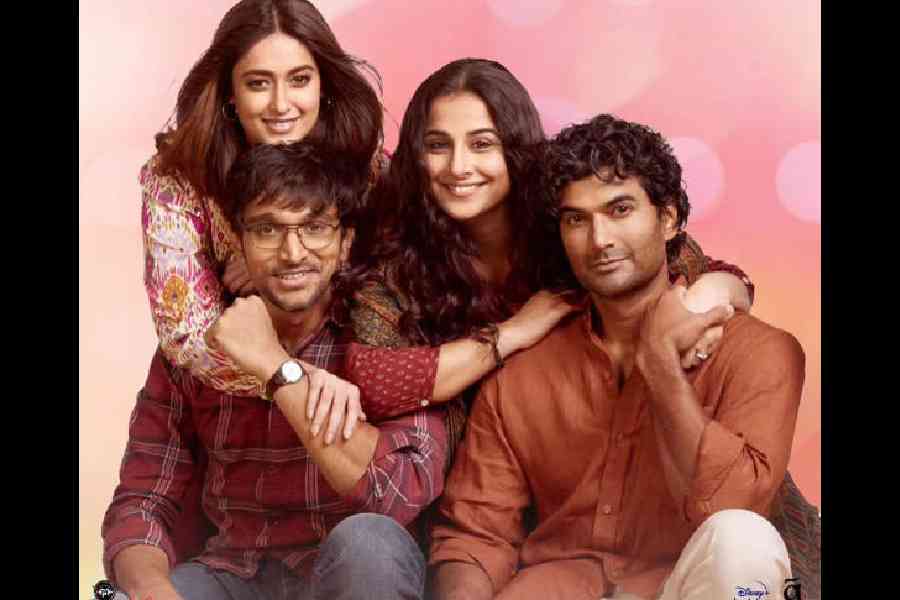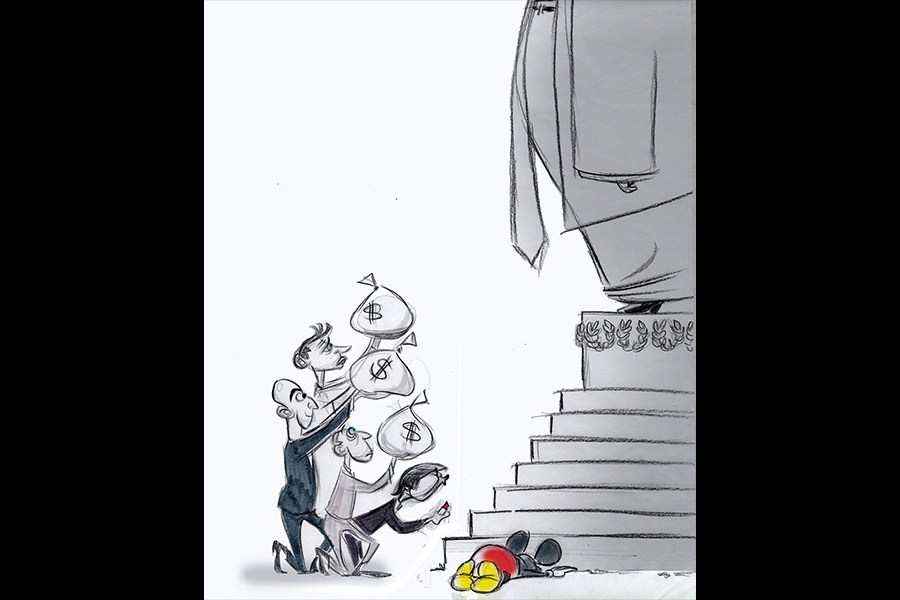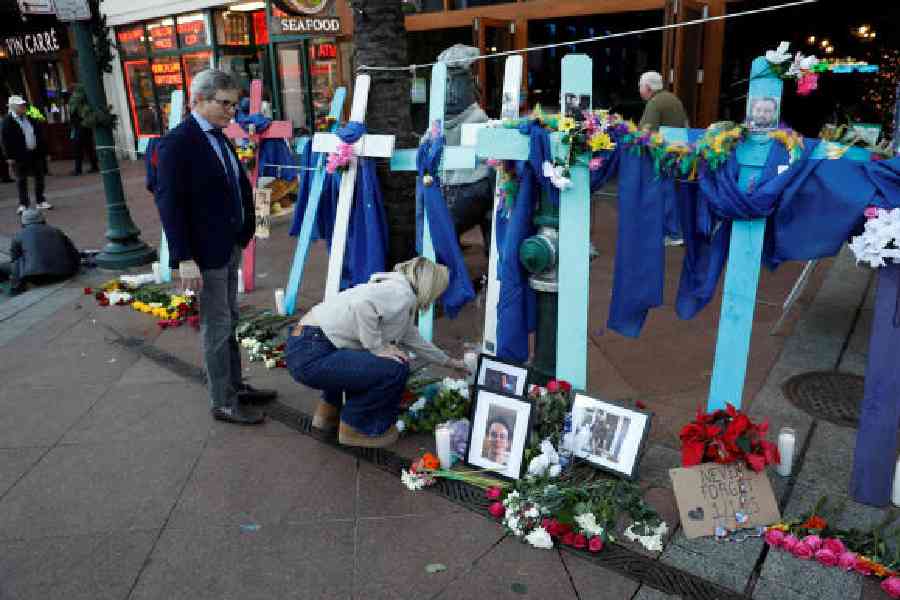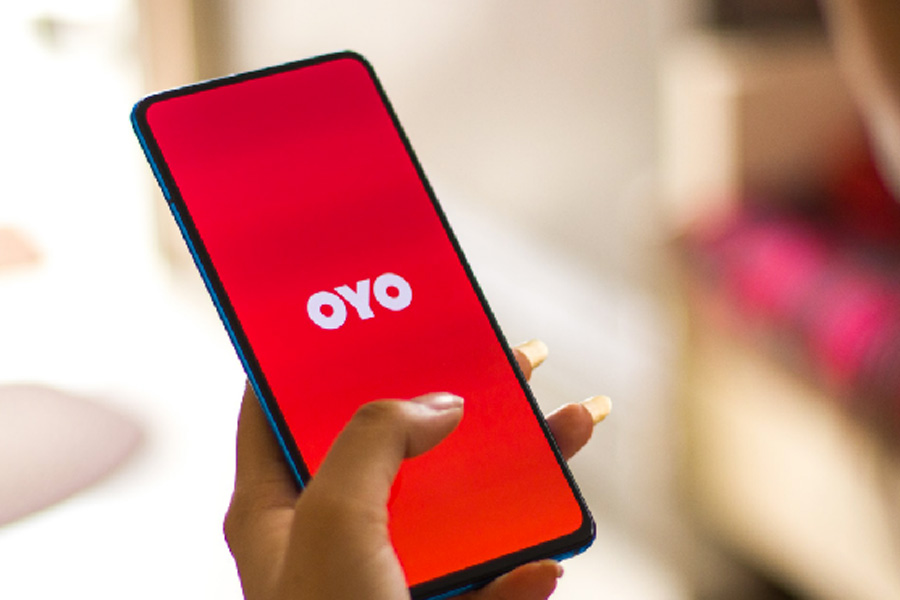Advertising professional Shirsha Guha Thakurta has made her feature film directorial debut with Do Aur Do Pyaar. Opening to unanimously positive reviews, the film about modern-day relationships has been praised for its plot and performances as well as Shirsha’s deft direction. t2 chatted with the filmmaker — who grew up in Ballygunge Place and studied at Modern High School for Girls — on the film, that is now playing in cinemas, and more.
According to you, what sets Do Aur Do Pyaar apart from the films we get to see nowadays?
I think the lead pair (Vidya Balan and Pratik Gandhi) is very fresh. This is a pair we haven’t seen together in the past. Also, after a long time, we have a simple everyday slice-of-life film. It is not a biopic or a mythological epic or a larger-than-life action thriller. I hope somewhere down the line, these simple slice-of-life films start doing well again. The industry needs to make a range of films. If films like Do Aur Do Pyaar don’t work, unfortunately, there will be only one kind of film that will get made in the future and as an audience, we have to then watch only those films. We need to go back to simple stories of simple lives. What about everyday people like you and me? Are our stories not important?
Do Aur Do Pyaar is a film on the cyclical nature of modern love. The fact that it is no longer a simple binary equation like it used to be or is expected to be. It is more complex and it is many more things than just a simple equation.
How did the film come into being?
This is an adaptation of a film called The Lovers. It is an A24 production. We bought the rights of the film and then, of course, we made it our own and changed quite a bit of it to make it more identifiable to our people, our culture and our city life. The idea came from the fact that nothing is constant. Everything changes and so does love.
Did you always plan this film to be your debut directorial feature?
I am a very happy ad filmmaker and because that profession has always kept me so busy, I had never thought of getting into the long-format medium.
Ellipsis (Entertainment), one of the producers of Do Aur Do Pyaar, found me and convinced me that this was a nice film to make. I found the world very lovely. I wanted to tell a contemporary story about the complexities of human relationships. I thought I could make this my own. They were very open to collaborating and writing it together and adapting it in whatever way I liked. They did not come in my way at all.
But the pandemic happened and we had to stop for some time. Shooting the film, post-Covid, was very hard. We had to wear masks on set, people would fall sick all the time. Ileana (D’Cruz, who plays Nora) had Covid right before we started shooting.
It must have been pretty taxing for a first film...
Yes, but to balance things out, I got these four absolutely fantastic, generous actors who were just amazing. They made my life so easy that I have nothing to complain about. While it was hard, it also couldn’t have been easier than this.
Your cast is eclectic, in the true sense of the term...
The producers had a very large role to play in the casting. We wanted the film to look real, and not like a fairy tale. I needed these people in the film to look like you and me. And who better than Vidya to make the world of a film feel believable?
She loved the script but she took her time to say ‘yes’. She has this thing of signing on a bound script and she needs to be happy about every word in the script to give her nod to a film. Once she said ‘yes’, we spoke to Pratik who was quite excited to do a romantic film. He said that not too many people go to him with a love story.
We had a meeting over coffee between Vidya and Pratik just to see how they looked together, how they vibed. That went off well and the look test was even better, they look great together.
They are fantastic actors and on set, their energies were in sync and they fed off each other. It was an absolute joy to watch them together.
What made you opt for Sendhil Ramamurthy whose only Hindi film before Do Aur Do Pyaar was Shor in the City more than a decade ago?
We truly lucked out. We met over Skype after we had sent him the script. Sendhil has never lived in India and he can’t speak Hindi fluently. Once he showed an interest in the film, we had to tweak the character to match it for him. We made him an NRI who speaks English in the film. He speaks little bits in Hindi, which are mostly wrong and that is a running joke in the film. He breathed love and magic into that character. He was happy to do a Hindi film after a while.
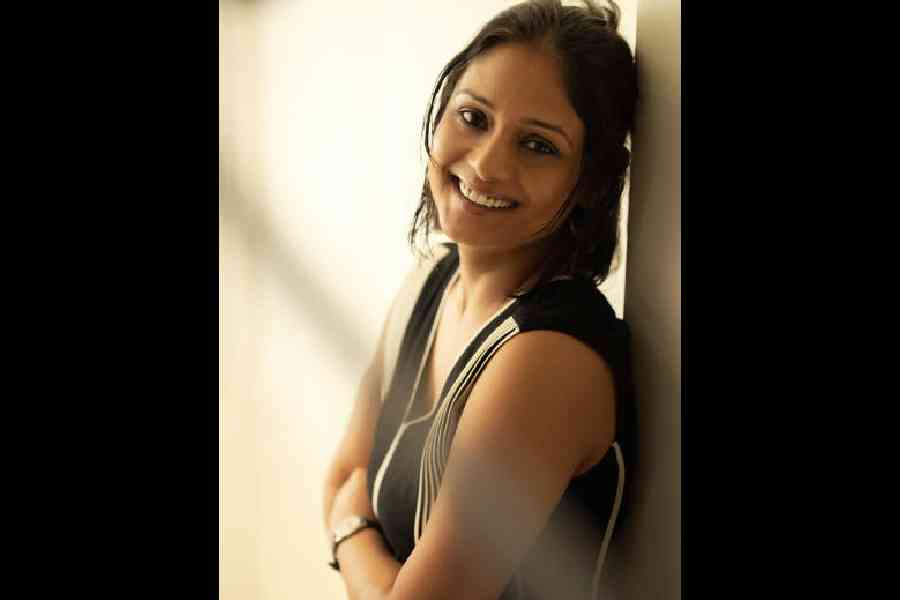
Shirsha Guha Thakurta
Did you always want Pratik’s character to be Bengali?
We had a couple of options in mind. Pratik is Gujarati and we didn’t want him to speak a caricaturish kind of Bengali. There are Bengalis living in Bombay and Delhi whose Bengali isn’t like someone like me who was born and brought up in Calcutta. Pratik’s Ani has never lived in Calcutta so he didn’t have to be a ‘Bengali-Bengali’. We had to only give him some cultural nuances.
Vidya’s Kavya was always meant to be the Tam-Brahm girl and we had to make the guy opposite her hail from a diametrically opposite culture. One of the options was to make Pratik’s character Punjabi...
The north-south divide has been done to death...
Yes, true. So we looked at another very strong and opposite culture and that was Bengali.
Was humour, especially in Half One, the route you always wanted to take?
We wanted a certain element of lightness. This is not a film about infidelity. It was always meant to be a funny, joyful, emotional rollercoaster ride. It is not sad or happy.... It is the roller coaster of life that keeps changing. The film doesn’t judge anyone. After watching the film, the viewer will feel for all the four characters.
How did growing up in Calcutta shape the person that you are as well as nurture and nourish your creative side?
I am as Bengali as it comes. My Hindi is terrible! I come from a family that is very heavily into music and cinema, and I grew up with a lot of both around me. There was a certain kind of films that we watched growing up and that has greatly shaped what is acceptable to me as a filmmaker today.
I have grown up with very strong women around me, with their heads very strongly placed on their shoulders and with a point of view. We grew up very open-minded and that has definitely shaped my gaze and what I believe is right or wrong. I am very proud of what Calcutta has given me.
What’s next for you?
I am back to doing advertising very happily. I love and enjoy advertising. I am a second-generation advertising professional, my father was also in advertising.
I am also working on a few ideas for the long format. It is a very time-consuming process. Do Aur Do Pyaar was in the making for four years and I want to first see how this film does before I plunge into the next. I am definitely writing a few things.

